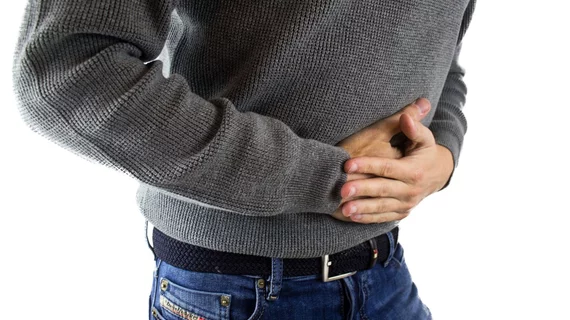FDG PET/CT spots COVID-induced pancreatitis
A new report in Cureus once again highlights the far-reaching effects of COVID, detailing the discovery of incidental pancreatitis triggered by the respiratory virus in a patient who was otherwise asymptomatic [1].
“The COVID-19 pandemic and subsequent medical research have led to the discovery of various incidental findings that highlight the non-respiratory effects of SARS-CoV-2. Radiological imaging in this regard has played a vital role in identifying these pathologies,” explained co-authors of the report Zeeshan Qurban and Damian Mullan, both of the Christie NHS Foundation Trust in Manchester, United Kingdom.
Qurban and Mullan detailed the case of a 35-year-old patient who had been diagnosed with a relapsed, refractory form of classical Hodgkin lymphoma in 2017. After multiple failed therapies, the patient underwent a stem cell transplant in 2021, which follow-up imaging indicated was a successful treatment.
In December of 2021, the patient contracted a serious case of COVID, requiring hospitalization and intensive care. He was released in early January, only to return later that same month once again COVID positive. After a week, he was released. The patient underwent whole-body FDG PET/CT two weeks later as part of the restaging process for his lymphoma following his stem cell transplant.
Although the scan offered positive news for his condition, with no evidence of relapse, it showed increased diffuse homogenous FDG uptake throughout his pancreas. Further imaging and a review of the patient’s history ruled out risk factors for pancreatitis or any other underlying condition, such as gallstones, that might have triggered the inflammatory response.
After no other triggers were identified, it was determined that the patient’s pancreatitis was a side effect of his recent COVID infection. At his six-month follow-up, no abnormal FDG uptake was observed, however, the inflammatory response resulted in the patient entering a diabetic state that required routine insulin.
At this point, there are limited data to determine whether pancreatitis in COVID patients is the result of a stress response triggered by severe illness, or by direct damage to the β-cell structure and function, the authors explained. However, in these instances, FDG PET/CT has proven valuable in detecting inflammatory responses and thus guiding their management. The authors suggested that the modality might have a greater role in the future of follow-up COVID studies.
The case report can be viewed here.



